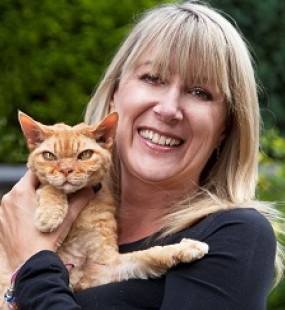"caring for cats"

Subject : Desperate housecats? The indoor/outdoor debate
Live webinar date: 23rd May 2018, 8pm
The majority of pet cats in the UK are allowed outdoors but, in many countries, the trend is towards indoor living, for example in the USA between 50 and 60% are housed indoors. As this represents an unnatural life for the species, owners have to work harder to fulfill the needs of their pets. Indoor living is often associated with increased risk of obesity and cats kept indoors have been shown to have more behaviour problems than those with outdoor access.
This presentation will look at the relative pro’s and con’s of both the indoor and outdoor options but introduces many other factors to consider, . The presentation will look at Vicky’s own cat behaviour referral caseload to identify whether this confirms there is a correlation between the development of behavioural problems and an indoor lifestyle, with surprising results which illustrate how this is definitely not a black and white scenario.
One of the significant factors that this presentation also considers is the impact that the owner’s attitudes and beliefs can have on the relationship with an indoor cat. The ability of a cat to cope with ‘relational demands’ that they cannot escape is variable, dependent on their genetics and the quality of their early socialisation. Some cats will adapt to, tolerate and even enjoy a high level of social contact with their owners while others may find it a source of significant stress.
Owners often have unhelpful, anthropomorphic beliefs about keeping their cat/s indoors and these include feelings of guilt, the need to compensate and the importance of showing their pets love, because they are out at work, for example, and their cats may feel neglected. This can result in over-compensation that manifests in excessive focus, handling, holding and excitable verbal communication which can potentially cause, dependent on the temperament of the individual, anxiety or over-arousal.
So, which lifestyle is better…?
Learning objectives
– Describe the needs of the cat as a species
– Explain the most commonly stated pro’s and con’s for indoor and outdoor lifestyles
– Describe a number of behavioural problems and common health issues that may by more relevant to an indoor or outdoor lifestyle
– Explain the impact of the external cat population on the wellbeing of cat’s in a home
– Describe how an indoor lifestyle may alter the owner/cat relationship
Speaker: Vicky Halls
 Vicky Halls is a Registered Veterinary Nurse and full member of the Association of Pet Behaviour Counsellors, consulting all over the UK as a feline specialist. She is an enthusiastic supporter of the charity International Cat Care, working with them on various behaviour and welfare projects. She is a regular contributor to television, radio and specialist publications. Vicky is also a qualified person-centred counsellor and registered member of the British Association of Counsellors and Psychotherapists.
Vicky Halls is a Registered Veterinary Nurse and full member of the Association of Pet Behaviour Counsellors, consulting all over the UK as a feline specialist. She is an enthusiastic supporter of the charity International Cat Care, working with them on various behaviour and welfare projects. She is a regular contributor to television, radio and specialist publications. Vicky is also a qualified person-centred counsellor and registered member of the British Association of Counsellors and Psychotherapists.
Vicky is the author of a number of bestselling books (Cat Confidential, Cat Detective, Cat Counsellor, The Complete Cat, The Secret Life of Your Cat and The Bluffer’s Guide to Cats) and co-author of a number of veterinary textbooks. She was voted The Nation’s Favourite Cat Behaviour Author in the UK. Her particular interest is the complexity of the modern cat/owner relationship.
May 2018

 menu
menu